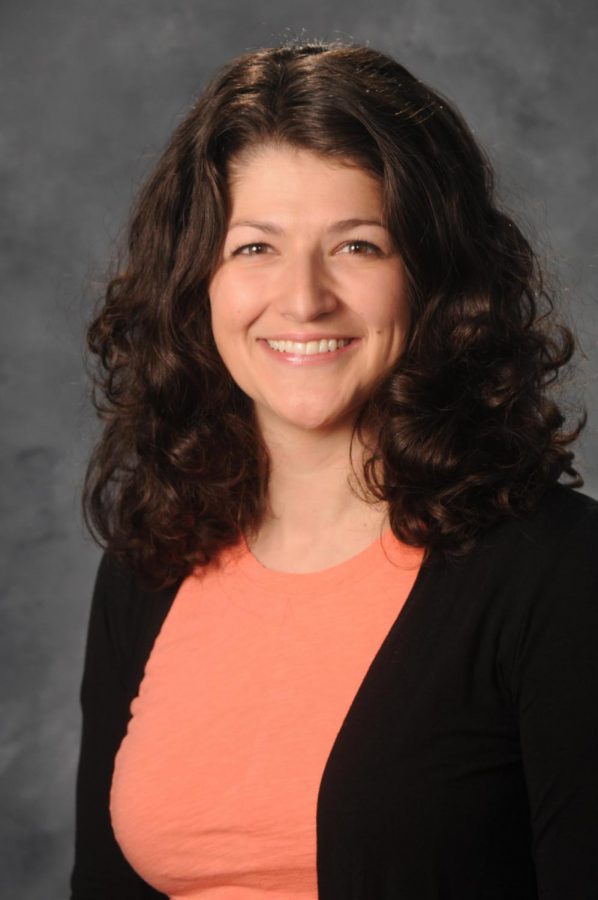Career Q&A for graduating seniors
The Career Development Center (CDC) answers questions to help assist seniors through the job search process during a pandemic.
April 20, 2020


Through email correspondence to ensure social distancing, Masha Finn and Mara Stommes, career counselors from the Career Development Center (CDC) share advice and assistance for job-hunting seniors.
Their answers include information about services offered and how to utilize them, next steps, advice on how to move forward in our current climate, and problems that may be arising. The answers have been edited for length and clarity.
Q: What services is the CDC offering to seniors now that so much of the world is shut down or operating remotely?
A: We have made our 1:1 appointments virtual. Students can meet with career counselors by video or phone. They can set up these appointments on Handshake or by calling the office at 651.523.5802. Students can continue to access these appointments for up to three years after graduation.
We are maintaining a document of up-to-date resources, which includes information about who is hiring (locally and beyond), info for conducting virtual and phone interviews, access to information about unemployment benefits and student loan deferments, and job search resources.
We are hosting online-based job search groups. We have a group specifically for seniors that will focus on where they are at currently and contribute what they know in a group setting to connect with their peers who are in their shoes.
We are offering weekly “Career Chats.” Starting April 21 – May 12, [we] will be hosting 1-hour virtual conversations with students every Tuesday 11:30 a.m.-12:30 p.m. The series will answer student questions while also briefly covering common topics such as how to make your job applications stand out, the [number one] way to job search right now, who is hiring and how to guarantee solid video/phone interviewing skills. We are hopeful that providing this ongoing series it’s flexible enough where students can join when they are ready and leave when they need, while also having plenty of time to get answers to their questions.
Students can add the weekly event to their Google Calendar by clicking here, and they can log in to the chat each week using this Google Meet Link.
Q: What advice do you have for seniors as they enter the next phase of their careers, education and life?
A: We’d recommend that seniors take a step back and assess what their values and needs are at this time. In college, students have had a syllabus and an expectation of what the next few years might hold. Graduating from college (and any transition, really) increases the feelings of ambiguity a person may feel about their next steps. We think COVID-19 has only intensified this experience, and we would encourage students to spend time considering their short-term needs and long-term goals to inform their career plans.
It’s going to be a trying time, but a job search in a good economy can take 2-6 months, which can be daunting. We would encourage all seniors to not let the pandemic stop them from researching their dream company and assessing the type of culture they would like to work in or the type of manager they would like to have.
Seeing how companies are responding to this current crisis can also give insight into the company culture and leadership moving forward. Continuing to be intentional about what they want is even more important now, as they will need to have more clarity in their goals as they look to pursue them. This clarity will make them even stronger candidates. If students are unsure about their goals, we’d happily welcome them to create an appointment with a career counselor to support their interests and exploration.
Q: How would you recommend seniors get in touch with places of work, internships, and school opportunities?
A: No matter the job outlook, the number one way to find positions is by knowing the people who work there. We’d recommend seniors get in touch with employers by first reaching out to Hamline graduates via LinkedIn, using the Alumni Network tool.
Overwhelmingly, [employers] have shared that students should reach out and develop relationships with employers they may be interested in working for to learn more about their company culture, get advice on how to get into the field they are most interested in and learn more about the employees’ experiences there via an informational interview (you can view what an informational interview is here).
It is important to note that this is not an opportunity to ask for or get a job, but rather a way for a student to learn about a company and assess their own interest in working there, and for that company to learn about the student and determine whether they might want to recommend that person for a job, whether or not a position is currently available!
Information interviews can make a huge difference when employers are reviewing applications. The additional insight you can gain from an informational interview shows them that you have gone above and beyond in learning about the company. Also, that employee you’ve connected with could put in a good word for you. If students are concerned about how to engage with employers and alumni, we’d recommend they set up an appointment with the Career Development Center to discuss the best ways to reach out and connect with employers virtually.
Q: What should seniors be doing on their own? What can the CDC help with?
A: We would recommend students reach out to their network to learn more about the types of positions and companies they are most interested in pursuing, and learn from employees about their work and advice they would give. Students already have a lot of people in their network – classmates, coworkers, supervisors, professors/staff – and they can develop new connections with employers and alumni on LinkedIn and through the CDC.
At some point, employers will begin hiring again or potentially be hiring for roles they haven’t even created yet. If students have made connections and had conversations with people in their field, they will be more aware of potential jobs, industries and organizations, which will set them apart.
Students can do this outreach themselves, and the Career Development Center can help them engage in best practices when it comes to reaching out to employers. Our office can also provide support as students cater their resumes and cover letters to specific roles, and help them prepare for virtual and phone interviews, ensuring they are confident in their interviewing skills.
Q: What is the biggest obstacle facing seniors in the current job climate? How would you recommend they navigate that?
A: The biggest obstacle seniors should expect is that employers may not have answers for them right now about their hiring needs. Some students may have already experienced being in the middle of an application process, and the employer has halted their hiring at this time, leaving the senior in the middle of what would have been a hopeful outlook on their job prospects.
Seniors might also read headlines about the upcoming recession and feel defeated about the job application process. We would encourage seniors to remain hopeful: give yourself time to process everything that is continuing to transpire and also give yourself room to explore your interests. Don’t let your worries keep you from pursuing the positions that most interest you, and that you feel best prepared for.
Another issue seniors will be running into is changing opportunities in some areas, as the economy and workforce needs shift. Keeping an eye on which companies/industries have increased hiring, which have had to institute hiring freezes, and which areas have layoffs will help students understand where their skills and interests could fit in. We are maintaining a list of resources that students can access to learn who is hiring, both locally and beyond.
Q: What should students know about how the Career Development Center can help them right now?
A: The Career Development Center is thinking a lot about how the increased ambiguity of the current situation is impacting students right now. If students are concerned about their next couple months and how to feel engaged in the process of finding jobs, we’d recommend they set up an appointment to work with a career counselor.
Oftentimes we’ve had students feel unsure about making an appointment because they feel they need to have a tangible thing to work on. That’s the biggest misconception about our office—that we can only work with students on tangible items such as cover letters, resumes, or grad school personal statements. However, a big part of career development is processing: talking through your interests and goals to gain more insight into how they have been informed by your life experience.
Students can meet with us to discuss the job process, but also where they are at in general right now and what they are concerned about. Seniors can continue to reach out to our office this summer and beyond. We offer appointments for up to three years after graduation.
